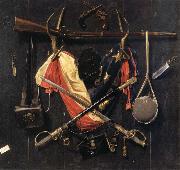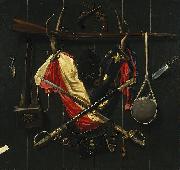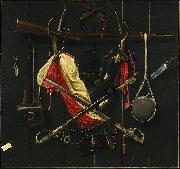
|
Pope Alexander
|
|||
|
|
|||
| American artist , b.1849 d.1924 | |||
|
|
|||
|
les Emblèmes de la Guerre Civile new12/Pope Alexander-779675.jpg ID de tableau:: 39092 |
mk140 1888 Huilent sur le canevas 137.6x129.8cm | ||
|
|
|||
|
Alexander Pope
|
|||
|
|
|||
| (21 May 1688 - 30 May 1744) was an eighteenth-century English poet, best known for his satirical verse and for his translation of Homer. He is the third most frequently quoted writer in The Oxford Dictionary of Quotations, after Shakespeare and Tennyson. Pope is famous for his use of the heroic couplet. Pope was born to Edith Pope (1643-1733) and Alexander Pope Senior. (1646-1717) a linen merchant of Plough Court, Lombard Street, London, who were both Catholics. Pope's education was affected by the penal law in force at the time upholding the status of the established Church of England, which banned Catholics from teaching, attending a university, voting, or holding public office on pain of perpetual imprisonment. Pope was taught to read by his aunt, then went to Twyford School in about 1698-9. He then went to two Catholic schools in London. Such schools, while illegal, were tolerated in some areas. In 1700, his family moved to a small estate at Popeswood in Binfield, Berkshire, close to the royal Windsor Forest. This was due to strong anti-Catholic sentiment and a statute preventing Catholics from living within 10 miles (16 km) of either London or Westminster. Pope would later describe the countryside around the house in his poem Windsor Forest. Pope's formal education ended at this time, and from then on he mostly educated himself by reading the works of classical writers such as the satirists Horace and Juvenal, the epic poets Homer and Virgil, as well as English authors such as Geoffrey Chaucer, William Shakespeare and John Dryden. He also studied many languages and read works by English, French, Italian, Latin, and Greek poets. After five years of study, Pope came into contact with figures from the London literary society such as William Wycherley, William Congreve, Samuel Garth, William Trumbull, and William Walsh. At Binfield, he also began to make many important friends. One of them, John Caryll (the future dedicatee of The Rape of the Lock), was twenty years older than the poet and had made many acquaintances in the London literary world. He introduced the young Pope to the aging playwright William Wycherley and to William Walsh, a minor poet, who helped Pope revise his first major work, The Pastorals. He also met the Blount sisters, Teresa and (his alleged future lover) Martha, both of whom would remain lifelong friends. From the age of 12, he suffered numerous health problems, such as Pott's disease (a form of tuberculosis that affects the bone) which deformed his body and stunted his growth, leaving him with a severe hunchback. His tuberculosis infection caused other health problems including respiratory difficulties, high fevers, inflamed eyes, and abdominal pain. He never grew beyond 1.37 m (4 ft 6 in) tall. Pope was already removed from society because he was Catholic; his poor health only alienated him further. Although he never married, he had many female friends to whom he wrote witty letters. He did have one alleged lover, | |||
|
|
|||
|
Emblems of the Civil War new23/Alexander Pope-355648.jpg ID de tableau:: 71085 |
ca. 1888(1888) Oil on canvas 137.6 x 129.8 cm (54.17 x 51.1 in) | ||
|
|
|||
|
Alexander Pope
|
|||
|
|
|||
| (21 May 1688 - 30 May 1744) was an eighteenth-century English poet, best known for his satirical verse and for his translation of Homer. He is the third most frequently quoted writer in The Oxford Dictionary of Quotations, after Shakespeare and Tennyson. Pope is famous for his use of the heroic couplet. Pope was born to Edith Pope (1643-1733) and Alexander Pope Senior. (1646-1717) a linen merchant of Plough Court, Lombard Street, London, who were both Catholics. Pope's education was affected by the penal law in force at the time upholding the status of the established Church of England, which banned Catholics from teaching, attending a university, voting, or holding public office on pain of perpetual imprisonment. Pope was taught to read by his aunt, then went to Twyford School in about 1698-9. He then went to two Catholic schools in London. Such schools, while illegal, were tolerated in some areas. In 1700, his family moved to a small estate at Popeswood in Binfield, Berkshire, close to the royal Windsor Forest. This was due to strong anti-Catholic sentiment and a statute preventing Catholics from living within 10 miles (16 km) of either London or Westminster. Pope would later describe the countryside around the house in his poem Windsor Forest. Pope's formal education ended at this time, and from then on he mostly educated himself by reading the works of classical writers such as the satirists Horace and Juvenal, the epic poets Homer and Virgil, as well as English authors such as Geoffrey Chaucer, William Shakespeare and John Dryden. He also studied many languages and read works by English, French, Italian, Latin, and Greek poets. After five years of study, Pope came into contact with figures from the London literary society such as William Wycherley, William Congreve, Samuel Garth, William Trumbull, and William Walsh. At Binfield, he also began to make many important friends. One of them, John Caryll (the future dedicatee of The Rape of the Lock), was twenty years older than the poet and had made many acquaintances in the London literary world. He introduced the young Pope to the aging playwright William Wycherley and to William Walsh, a minor poet, who helped Pope revise his first major work, The Pastorals. He also met the Blount sisters, Teresa and (his alleged future lover) Martha, both of whom would remain lifelong friends. From the age of 12, he suffered numerous health problems, such as Pott's disease (a form of tuberculosis that affects the bone) which deformed his body and stunted his growth, leaving him with a severe hunchback. His tuberculosis infection caused other health problems including respiratory difficulties, high fevers, inflamed eyes, and abdominal pain. He never grew beyond 1.37 m (4 ft 6 in) tall. Pope was already removed from society because he was Catholic; his poor health only alienated him further. Although he never married, he had many female friends to whom he wrote witty letters. He did have one alleged lover, | |||
|
|
|||
|
Emblems of the Civil War new23/Alexander Pope-848596.jpg ID de tableau:: 72221 |
Date ca. 1888(1888) Medium Oil on canvas Dimensions 137.6 X 129.8 cm (54.17 X 51.1 in) cyf | ||
|
|
|||
|
Also Buy::. For Following Paintings / Artists / Products, Please Use Our Search Online: |








